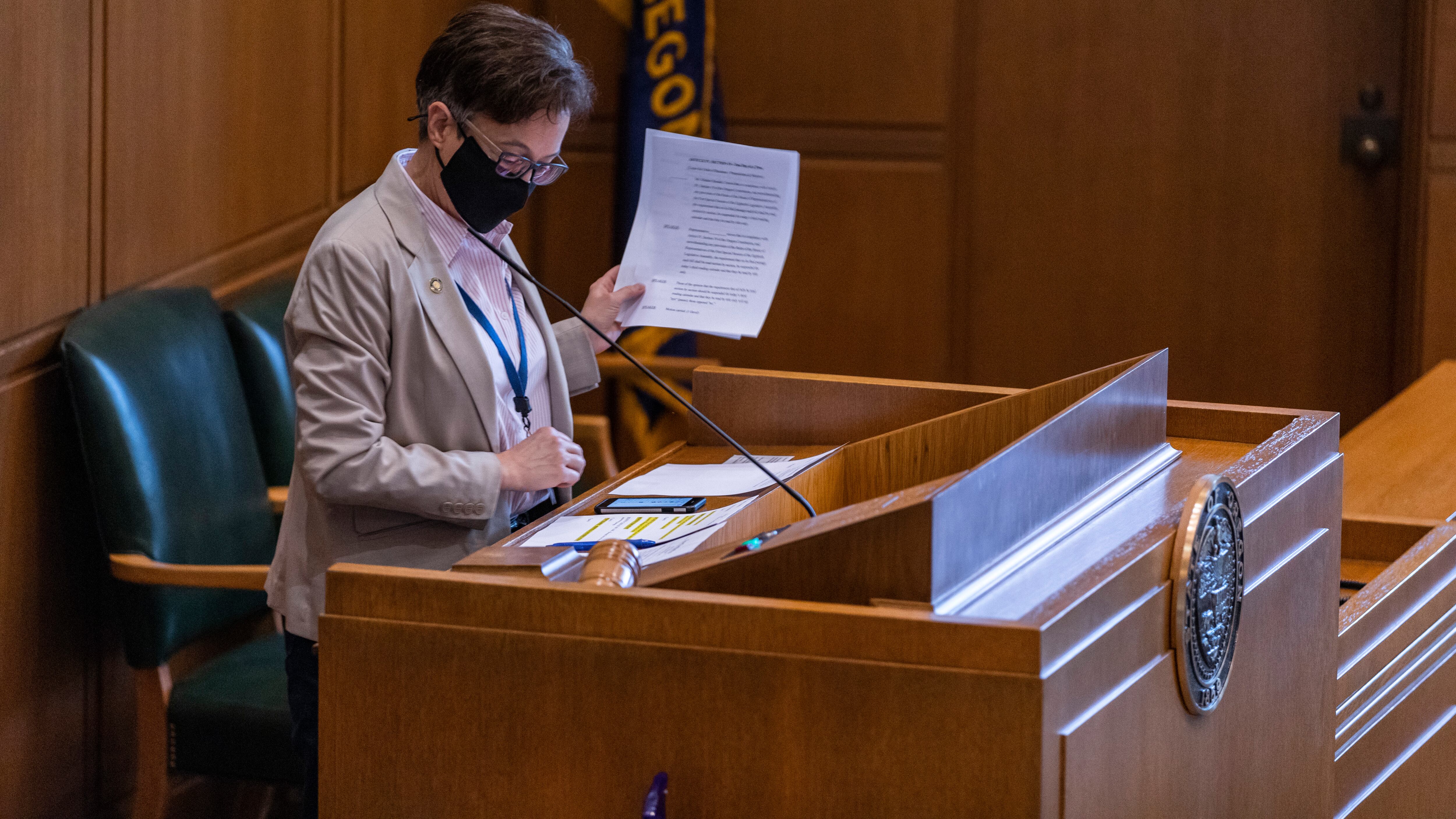On Friday, the Oregon Legislature posted concepts for its next round of police reform bills, including a blanket ban on chokeholds and tear gas as well as new efforts to crack down on the arbitration appeal process for the discipline of law enforcement.
Another bill concept would require police officers to display their last name and badge number unless undercover and provide that information to any member of the public who asks for it. Officers covering their names while responding to protests is now a common practice by the Portland Police Bureau.
The blanket ban on tear gas follows the continued use of such gas by the Police Bureau, even after restrictions on its use were passed in the previous special legislative session in June.
House Speaker Tina Kotek criticized the use of tear gas by the bureau after the last round of reform bills.
"Instead of managing the situation, they created an unsafe situation and a public health hazard with their use of CS gas, in a residential area (and near several gas stations, I might add)," she wrote in an open letter to Portland Mayor Ted Wheeler. "It was an unnecessary escalation by the PPB against people exercising their freedom of assembly and freedom of speech."
The bills could be taken up as soon as the next special session, or in next year's regular session, but the Joint Committee on Transparent Policing and Use of Force Reform will hold a series of hearings on the concepts this week.
One draft of a legislative concept proposes to extend limits the Legislature placed on the use of chokeholds in a House bill during the special session.
Another bill aims to build on House Bill 4205 from the special session, which required police officers to report the misconduct of other officers. "Legislative Concept 744 identifies a process for a police or reserve officer to report misconduct committed by another officer within their unit," according to the staff measure summary.
Still another would limit the power of arbitrators to overturn disciplinary actions against law enforcement officers and create standards around police discipline that would apply statewide.

